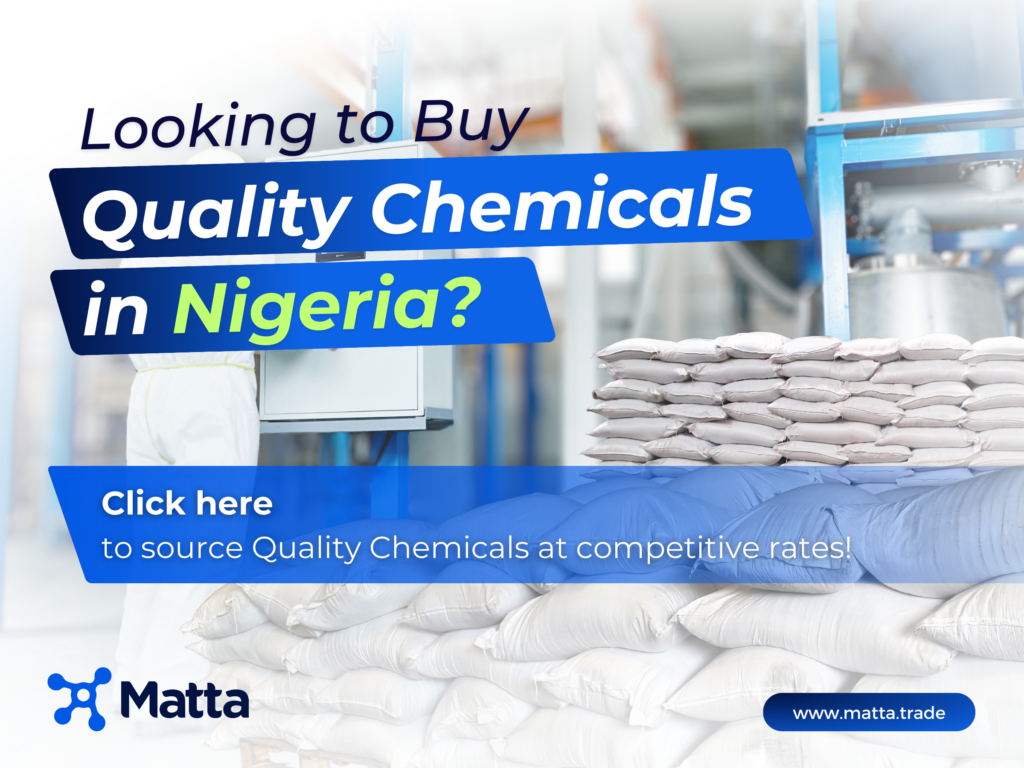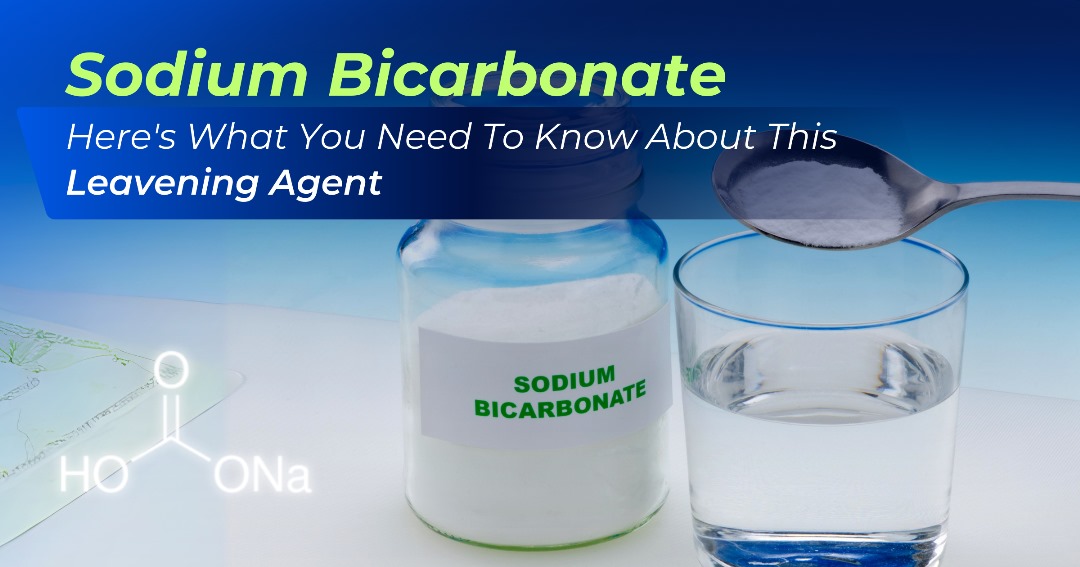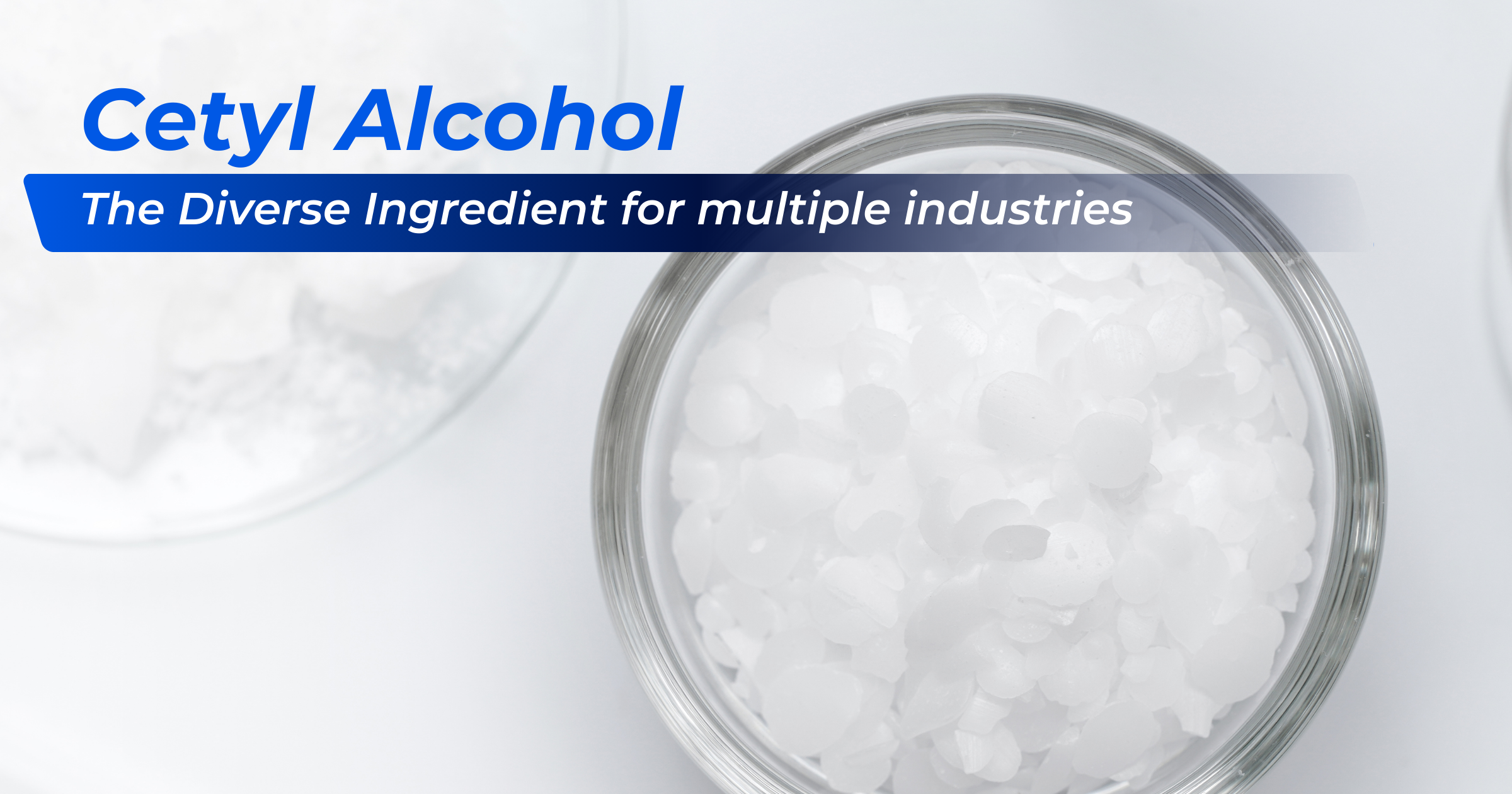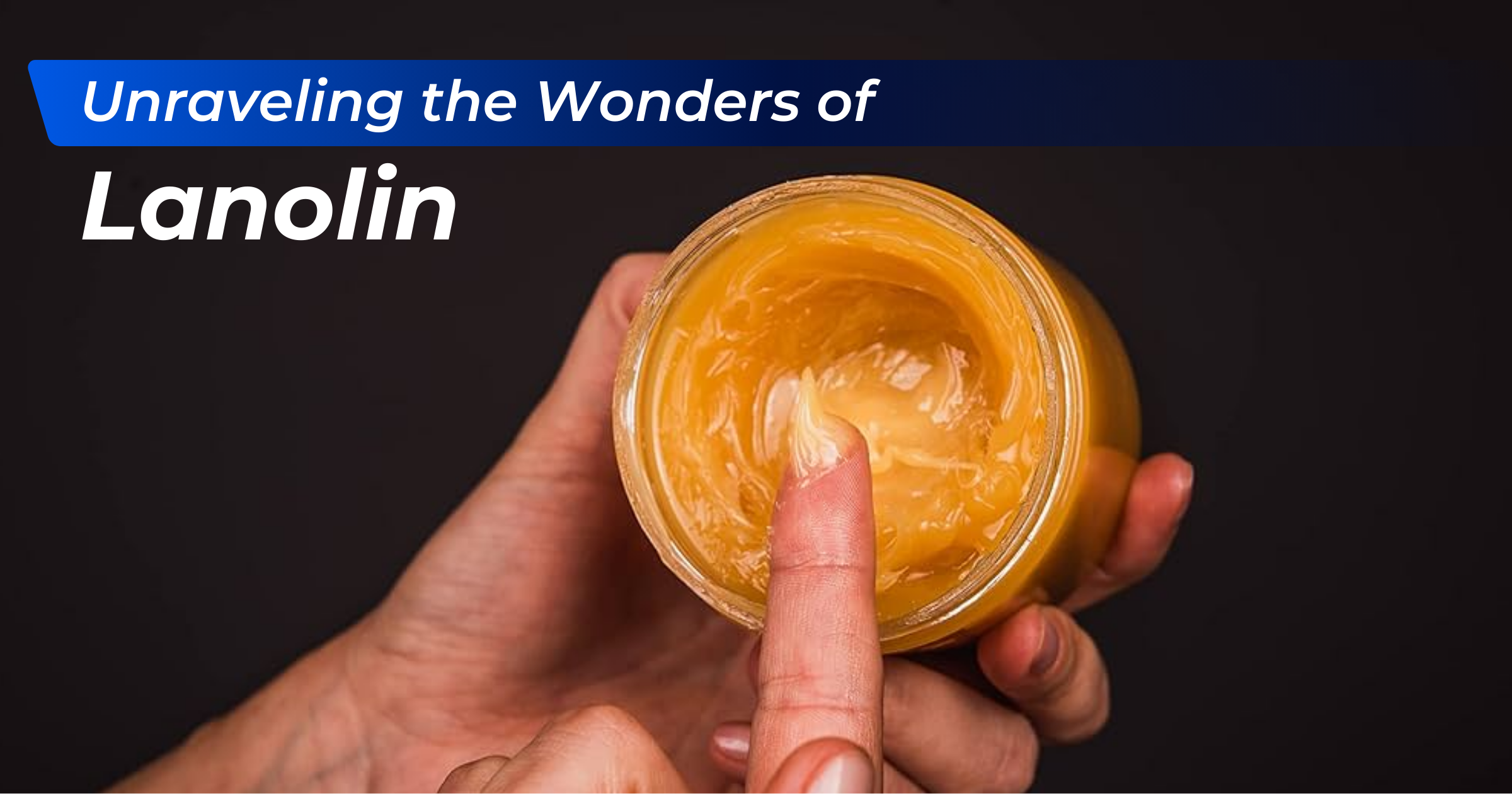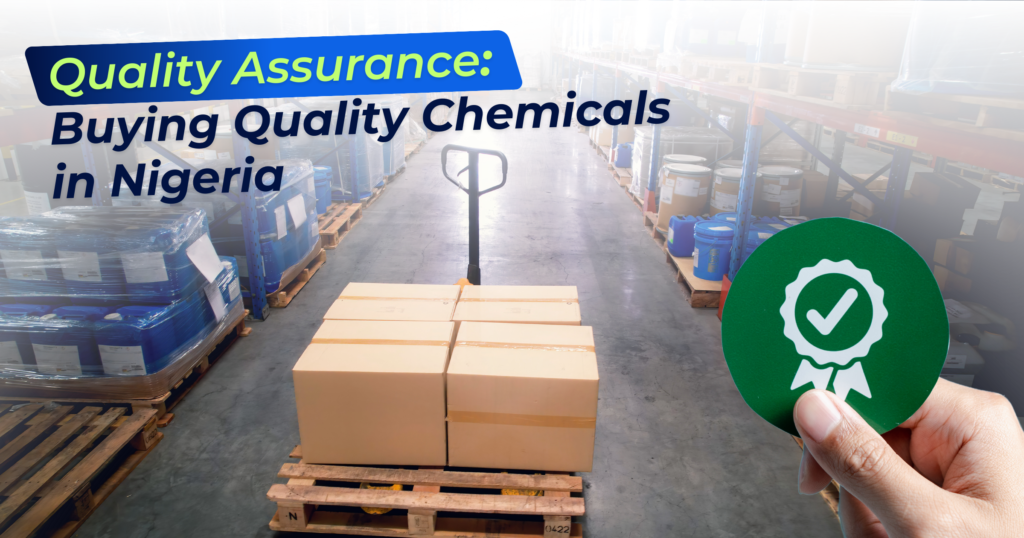
Quality is the most crucial factor to look out for when buying and applying chemicals. The quality of chemicals and raw materials can be the difference between a great & failed product line. This is why it is essential to understand quality standards and, more importantly, discover how to recognize them. This article serves as a unique guide to the complexities of understanding quality chemicals.
The chemical industry underpins modern economies, supporting sectors from agriculture to pharmaceuticals. Quality assurance in chemicals is essential not only for maintaining product standards but also for protecting public health, the environment, and industrial operations. Poor-quality chemicals can cause crop failures, endanger lives, and lead to product defects, resulting in financial losses and safety risks.
This article explores quality assurance in Nigeria’s chemical industry, detailing verification steps, global quality checks, and best practices. It also showcases how Matta, as an aggregator, upholds top-quality standards to ensure trust, reliability, and safety across the chemical supply chain.
The Importance of Quality Assurance in Chemicals
Quality assurance in the chemical industry is not just a regulatory requirement; it’s a fundamental aspect that impacts every facet of the industry. The quality of chemicals directly affects their safety, efficacy, and reliability. In sectors like pharmaceuticals, agriculture, and manufacturing, the quality of chemicals can mean the difference between success and failure, health and hazard.
Matta’s role as a globally positioned chemical marketplace becomes crucial. We serve as the intersection between chemical demand and supply, ensuring that quality is not just a promise but a guarantee. By rigorously vetting suppliers and enforcing strict quality standards, Matta provides a reliable platform for sourcing chemicals.
Impact on Safety and Efficiency
The foremost concern in the chemical industry is safety. High-quality chemicals reduce the risk of accidents and health hazards in the workplace and for the end consumers. For instance, in agriculture, the quality of pesticides and fertilizers directly affects crop health and yield.
Efficiency is another critical aspect. Quality chemicals perform as expected, ensuring processes run smoothly and outcomes are predictable. This reliability is essential for maintaining productivity and avoiding costly errors or downtime.
Economic and Environmental Implications
Using substandard chemicals can have severe economic implications, leading to product recalls, legal liabilities, and loss of consumer trust, which can be financially devastating for businesses. Moreover, low-quality chemicals can cause pollution and long-term ecological damage, leading to costly clean-up operations and harm to wildlife and ecosystems.
Quality as a Market Differentiator
In a competitive market, the quality of chemicals can be a key differentiator. Companies that prioritize quality can build a strong reputation, gain customer loyalty, and command premium pricing. Quality assurance also opens doors to international markets.
The Role of Quality Assurance in Sustainable Practices
High-quality, environmentally friendly chemicals minimize waste and pollution, creating a more sustainable industry. Companies that adopt sustainable practices comply with regulations and demonstrate corporate responsibility, enhancing their brand image.
Steps for Verifying Chemical Quality
1: Understanding Certifications and Standards
- International and Local Standards: Familiarize yourself with relevant international standards (like ISO and ASTM) and local Nigerian standards for chemical quality. These standards provide benchmarks for purity, composition, and other quality parameters.
- Certification Checks: Verify that the chemicals come with appropriate certifications. Recognized bodies’ certifications ensure that the products have undergone rigorous testing and meet established quality criteria.
2: Supplier Evaluation
- Supplier Reputation: Research the supplier’s history and reputation in the market. A consistent track record of delivering high-quality chemicals is a good indicator of reliability.
- Quality Control Processes: Inquire about the supplier’s quality control processes. Reliable suppliers will have robust quality testing and assurance mechanisms in place.
3: Physical and Chemical Testing
- Sample Testing: Before making a bulk purchase, obtain samples for testing. Physical inspection and laboratory analysis can confirm if the chemicals meet the required specifications.
- Third-Party Testing: Consider using third-party laboratories for an unbiased quality assessment. This adds an extra layer of assurance, especially for critical or high-value chemical purchases.
4: Documentation and Traceability
- Batch Numbers and Documentation: Ensure the chemicals have proper documentation, including batch numbers, manufacturing dates, and expiry dates. This information is crucial for traceability and quality control.
- Safety Data Sheets (SDS): Review the Safety Data Sheets provided with the chemicals. These sheets contain vital information about the chemical properties, handling instructions, and safety measures.
5: Continuous Quality Monitoring
- Regular Audits: Conduct regular audits of the chemicals and suppliers. This helps in maintaining consistent quality standards over time.
- Feedback Mechanisms: Establish feedback mechanisms to report any quality issues. Prompt response to quality concerns is critical for maintaining trust and safety.
Matta’s platform ensures that all these quality verification measures are in place, assuring customers that the chemicals they purchase meet the highest quality and safety standards. This commitment to quality verification makes Matta a trusted name in the chemical industry in Nigeria.
Quality Checks for Specific Chemicals
1: Quality Checking Process for Diesel:
- Density and Viscosity Tests: These tests are crucial for determining the quality of Diesel. They help assess whether the fuel meets the required standards for efficient combustion and engine performance.
- Sulfur Content Analysis: Given the environmental and engine corrosion concerns, checking the sulfur content in Diesel is essential. Lower sulfur content is a marker of higher-quality Diesel.
- Cetane Number: This measures the combustion quality of Diesel fuel. A higher cetane number indicates better quality, leading to smoother engine running.
- Materials and Methods Used
- Spectroscopic Analysis: Techniques like X-ray fluorescence (XRF) are used to analyze the chemical composition of Diesel.
- Chromatography: Gas chromatography helps separate and analyze compounds that can be vaporized without decomposition.
- Confirming Diesel Quality
- Certification from Authorities: Ensure Diesel has certifications from relevant authorities, indicating compliance with national and international standards.
- Supplier Documentation: Review supplier-provided test results and quality certifications.
2: Quality Checking Process for Petrol:
- Octane Rating: This measures a fuel’s ability to resist ‘knocking’ or ‘pinging’ during combustion caused by the engine’s air/fuel mixture detonating prematurely.
- Evaporation Rate: Determines how easily the Petrol vaporizes, which affects engine start-up and performance.
- Key Indicators of Quality in Petrol
- Purity and Additives: The presence of impurities or incorrect additives can significantly degrade the quality of Petrol.
- Consistency: Regular testing to ensure consistency in quality across different batches.
3: Quality Checking Process for Ethanol:
- Purity Test: One of the most critical aspects of assessing ethanol quality is its purity level. This is particularly important for ethanol used in the pharmaceuticals and food industries. Water and other impurities can significantly affect its efficacy and safety.
- Impurity Profile Analysis: Tests like Gas Chromatography (GC) detect and quantify impurities like methanol, benzene, and acetaldehyde, which should be minimal to ensure quality.
- Materials and Methods Used
- Spectrophotometry: This method is used to analyze the chemical composition of ethanol, especially to detect any adulterants or contaminants.
- Refractive Index Measurement: This test helps determine the ethanol concentration in a solution, which is crucial for quality assessment.
- Confirming Ethanol Quality
- Compliance with Standards: Ethanol should meet the standards set by Nigerian regulatory bodies and international standards for specific uses, like pharmaceutical or industrial grade.
- Batch Consistency: Regularly test different batches to ensure consistent quality over time.
4: Quality Checking Process for Fertilizers:
- Nutrient Analysis: The primary quality check for fertilizers involves verifying the concentration of essential nutrients like nitrogen (N), phosphorus (P), and potassium (K). The ratio of these nutrients should align with what is stated on the product label.
- Contaminant Testing: Testing for harmful contaminants such as heavy metals is crucial, as these can affect soil health and crop yield.
- Materials and Methods Used
- Chemical Analysis: Techniques like X-ray fluorescence (XRF) and inductively coupled plasma mass spectrometry (ICP-MS) are used for detailed chemical analysis of fertilizers.
- Solubility Tests: These tests are essential to determine how well the fertilizer will dissolve in soil, which affects its efficacy.
- Confirming Fertilizer Quality
- Regulatory Compliance: Ensuring the fertilizer meets the Nigerian agricultural standards and relevant international guidelines.
- Consistency Checks: Regular sampling and testing of fertilizer batches to maintain consistent quality and nutrient levels.
How to Find Reputable Chemical Dealers in Nigeria
This section focuses on navigating the Nigerian chemical market landscape to locate reputable chemical dealers, ensuring that the quality assurance efforts translate into practical accessibility for buyers.
- Industry Associations and Trade Groups: Engaging with industry associations can provide insights into reputable dealers. These groups often have standards and guidelines that members must adhere to, which can be a quality marker.
- Trade Shows and Expositions: Attending chemical industry trade shows and expositions is an excellent way to connect with reputable dealers and directly assess their products.
- Online Marketplaces: With the digitalization of trade, online marketplaces like MATTA TRADE have become a significant channel for finding chemical dealers. These platforms often have vetting processes for sellers, providing an additional layer of quality assurance.
Key Locations Known for Quality Chemical Trading
- Lagos: As Nigeria’s commercial hub, Lagos is home to various chemical dealers, offering everything from basic industrial chemicals to specialized compounds.
- Port Harcourt: Known for its proximity to the oil and gas industry, Port Harcourt is a crucial location for petrochemicals and related products.
- Kano: Kano’s historical role as a trading city makes it a significant centre for agricultural chemicals and inputs.
- Ogun: Ogun is an emerging industrial hub that leverages its closeness to Lagos and vast industries to develop industrial infrastructure. Due to this development, the state is emerging as one of the country’s chemical trading hotspots.
By aggregating verified and reputable chemical dealers, platforms like Matta offer a one-stop shop for quality chemicals in Nigeria. This not only saves time and effort for buyers but also adds an extra layer of assurance regarding the quality and reliability of the products.
Wrapping up
As we draw the curtains on our insightful journey through the landscape of quality assurance in the Nigerian chemical industry, it’s clear that the stakes are high. Quality isn’t just a buzzword; it’s the backbone of safety, efficiency, and trust in an industry that touches lives in countless ways.
We’ve navigated the meticulous processes of verifying chemical quality, understanding that it combines science, vigilance, and commitment. Whether it’s the density tests for Diesel, the octane ratings for Petrol, or the purity checks for Ethanol and Fertilizers, each step is a testament to the rigor required to uphold standards that safeguard our health and our environment.
But knowledge only becomes power once it’s applied. That’s where the real challenge lies – in translating these standards into accessible realities.
This is where Matta steps in, bridging the gap between stringent quality assurance and market accessibility. Imagine a marketplace where every dealer is vetted, every product is tested, and quality is guaranteed.
So, take that step today. Explore Matta’s diverse range of quality-assured chemicals. Experience the ease and assurance of making informed purchases.
Follow us on Linkedin and join a community where quality is the currency and excellence is the norm.
In a world where quality can not be compromised, let Matta be your guide and partner in the journey towards excellence. Because when it comes to chemicals, it’s not just business as usual; for us, it is about building a safer, more efficient, and sustainable future.
